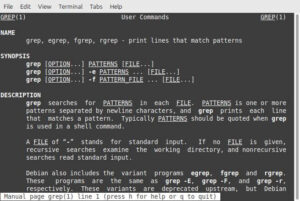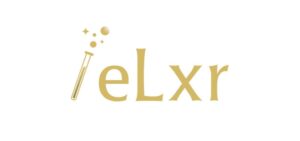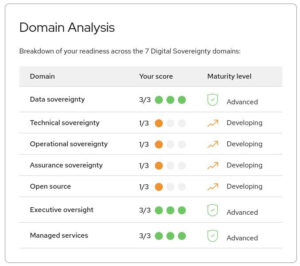The city of Lyon is getting rid of most of its US software. Its choice of OnlyOffice instead of LibreOffice has me scratching my head.

When Lyon, France announced about a month back that it’s going to be ditching US software in favor of software developed a little closer to home, I wasn’t surprised. What did have me scratching my head was the city’s choice of OnlyOffice as its Microsoft Office replacement. Not only is this bucking a trend, it’s also a questionable choice on other levels as well.
From a European perspective, the reasons for dumping Microsoft–along with the likes of Oracle, AWS, and Google–are clear. Local data regulations–including the GDPR and others–along with regulations decreeing that data collected in an EU country stay in that country, protect privacy, and are taken seriously. Especially now that data collected and stored in the EU is subject to US government subpoena.
Lyon isn’t the only government in the EU showing US software makers the door. Denmark, the German state of Schleswig-Holstein, and a growing list of governments and public agencies are moving away from US software to embrace open-source solutions. Generally, Microsoft Office is the first to get dumped, with LibreOffice, often paired with Collabora for web-based collaboration, being the replacement.
Those choices make sense. LibreOffice is developed by The Document Foundation, headquartered in Berlin and based on software that started life in Germany back in the 1980s. LibreOffice started life as a fork of OpenOffice, which was based on StarOffice, a proprietary office suite that Sun Microsystems acquired when it purchased the Germany-based company Star Division in 1999.
Collabora, basically an online version of LibreOffice that’s headquartered across the channel in the UK, has close ties to The Document Foundation. Over the years several people employed by or affiliated with Collabora have served on the foundation’s board, and the company itself is on the advisory board.
Lyon’s Different Drummer
Again, while the rest of Europe seems to be settling in and making the combination of LibreOffice and Collabora something of a de facto standard, Lyon is marching in its own direction by adopting OnlyOffice.
The city’s reasons for wanting to drop the likes of MS Office and other productivity software from the States for something more home grown and open is about the same as elsewhere in Europe:
- Reduce dependence on US software
- Achieve digital sovereignty
- Ensure GDPR compliance
- Support local and regional tech ecosystems
- Foster open, interoperable solutions
Both Collabora and OnlyOffice tick those boxes—at least on paper. Both are open source, both are European (Collabora in the UK, OnlyOffice in Latvia), and both offer modern, collaborative office suites with strong Microsoft Office compatibility, although OnlyOffice tends to do better with Office docs with complex formatting.
Except for Office compatibility, Collabora matches or surpasses OnlyOffice on almost every front, and its Microsoft Office compatibility is more than good enough for real-world use (pro tip: you’ll get increased compatibility by downloading and using Microsoft fonts). It’s also the default office suite for Nextcloud, the cloud platform of choice for public sector deployments across Europe.
In addition, its security model is also stronger, since documents being “shared” for collaboration purposes never leave the server and it’s fully open source with no arbitrary limits.
|
The latter is an important point, especially in the EU which has a goal of using open source software whenever possible. While OnlyOffice advertises itself as open source, it’s actually an open core platform, meaning it combines open source with proprietary software, with the free version having resources and capabilities that are limited enough to make it all but unusable for many large government offices.
Security and Transparency
Let’s talk about what really matters in public sector tech: security and transparency.
Collabora and LibreOffice have a track record. They ship with ISO 27001 certifications (meaning they’re certified for managing sensitive information), endorsements from agencies such as Germany’s BSI (the country’s Office for Information Security), and are developed using a transparent, community-driven development process. Vulnerabilities are rare, and when they do appear, they’re quickly and openly patched.
OnlyOffice, on the other hand, has had its share of serious vulnerabilities, including remote code execution and privilege escalation flaws. Its open core model means the free version is limited (see sidebar), and its development process is less transparent.
From Russia, with OnlyOffice
Now for the elephant in the room.
I wouldn’t normally give much of a rat’s behind about the differences in the technology–after all, choice is choice–or even the proprietary licensing–freedom of choice is freedom of choice–if not for this:
OnlyOffice’s roots are in Russia, and the company appears to still be playing by Russia’s rules.
Let’s be clear: There’s nothing wrong with Russian technology or Russian developers. Nor is there a problem with the Russian people. The problem is with the Russian government, which has recklessly waged a war against a neighboring country that it invaded without provocation. With its more than 1,700 nuclear warheads that are locked, loaded, and ready to fire, and with another 1,200–1,500 waiting for dismantlement (or deployment), it is a danger not only to Ukraine but to the whole world–especially to its European neighbors with NATO membership.
OnlyOffice has gone to great lengths to obscure its association with Russia, but it appears that its current position as a Latvian company with British ownership and ties to Singapore is likely a fiction being played to avoid sanctions. Let me spell it out for you in plain English. I’ll also keep it simple:
- OnlyOffice was started in Russia by the company New Communication Technologies in 2009, in partnership with the Latvian company Ascensio System SIA. The project initially launched as TeamLab, a platform for team collaboration, before evolving into OnlyOffice. An important point here is that Ascensio System was wholly owned by Russia’s New Communication Technologies.
- Ascensio System SIA, which remains the company behind OnlyOffice, continued under the ownership of Russian-based New Communication Technologies until August of 2023, or about a year-and-a-half after Russia’s invasion of Ukraine, at which time the ownership transferred to a UK entity, Ascensio System Limited, which is owned by OnlyOffice Capital Group Pte. Ltd., a Singapore-based holding company.
- Meanwhile back in Russia (and this part’s pretty important if you want to start playing a game of Spy vs. Spy), the original Russian owner continues to sell a version of OnlyOffice to the Russian market under the P7-Office brand. This version is essentially the same office suite, adapted and marketed specifically for Russian customers, including government agencies, educational institutions, and commercial organizations.
What Does Ukraine Think?
In November 2024, DMS Solutions announced it was terminating all business relations with OnlyOffice, citing “close ties to Russia” and asserting that OnlyOffice is “a Russian owned company, which supports (does not condemn) the brutal and unprovoked Russian invasion of Ukraine” despite being formally registered in Latvia. In the announcement, it referenced a “comprehensive investigation” by Ukrainian media that it said exposed these connections.
DMS Solutions specifically criticized OnlyOffice for refusing to condemn the invasion of Ukraine. They reported that after repeated requests for clarification, OnlyOffice’s response was that it “stays away from politics,” which DMS Solutions interpreted as evidence of problematic ties and a lack of transparency.
While it’s true that “OnlyOffice stays away from politics” seems to be the company’s rubber stamp answer when it comes to questions about Russia and Ukraine, that may not be the smoking gun answer it appears. The issue in play here is broader, encompassing the combination of silence, ongoing Russian ties, and lack of transparency—rather than silence alone.
Indeed, among tech companies that were originally Russian and have since left Russia, only a handful of individuals have made public comments about the invasion. The companies themselves have mostly avoided commenting on Russia’s invasion of Ukraine, unlike Western tech firms that have routinely condemned the invasion.
Conclusion: In Search of a Better Answer
In the end, public sector tech decisions are about trust, transparency, and alignment with the values of the communities they serve. OnlyOffice’s unresolved Russian ties, limited free version, and security track record make it a strange choice for a city that claims to be leading on digital sovereignty. Until we get a better explanation, I—and many others I know—will remain unconvinced.
Lyon should definitely rethink this decision.
Christine Hall has been a journalist since 1971. In 2001, she began writing a weekly consumer computer column and started covering Linux and FOSS in 2002 after making the switch to GNU/Linux. Follow her on Twitter: @BrideOfLinux











And did the (Open|Libre)Office developers comdemn Israel’s treatment of Palestinians? I don’t want to use a software developed by people who remain silent and are not outraged by such atrocities.
If onlyoffice endorsed Joe Biden, you would like them, Christine? There are varying opinions on the Ukraine-Russian war. Just because a company does not endorse your particular opinion does not mean a city should not consider them.
I used Star Office on OS/2 back in the early 90’s. OpenOffice and later LibreOffice are wonderful tools, but there are some issue that remain to this day. I ran into problems recently with LibreOffice while writing a puzzle book. Issues with headers prevented me from completing the project. I tried OnlyOffice and, while not as tool and feature rich as LibreOffice, it handled my 6×9 book no problem. Plus the OCR plugin available on the free version is a Godsend. Do you feed OnlyOffice is a security issue? Does it phone home to the Kremlin or Mossad? Is my data safe?
> And did the (Open|Libre)Office developers comdemn Israel’s treatment of Palestinians? I don’t want to use a software developed by people who remain silent and are not outraged by such atrocities.
That’s part of the problem. Too much rage and outrage and not enough thinking and doing.
If you are looking for every software developer to take political stances on every issue, you will be disappointed. And software-less.
@Habram
It was sarcasm…
I agree politics should ideally stay out of software, far out of it. It’s not so much a pro-ukraine or pro-russia or pro-china thing, more about strategic dependency.
Christine adds two things up here that one should at least think about. On one hand, OnlyOffice isn’t developed in a community-style way. It’s throw-over-the-wall open source. Better than proprietary, certainly, but inherently riskier to rely on. Open Source (well, copyleft at least) levels the playing field a bit between vendor and user, but it’s not a panacea. Those benefits are far less if the product is developed internally. It means far less people look at the code -> making it easier to put in a back door. And less people could maintain it if the company behind it decides to remove features or shut it down. As they have shown by removing community edition features like access to mobile editing.
Then, the jurisdiction being Russia. Russia isn’t per-se out to hurt average people, other than through crypto scams, with whole scam farms allowed to target western countries from Russia. So as individual, I would only worry about the transparency issue. But as a city and certainly a state, strategic risks matter. We don’t want to use Huawei routers because they might have back doors and/or allow China to shut down our data centers? Same reasoning should of course apply to the software we use day to day to edit our documents.
As a private user – use what works for you. Small business, same. But bigger businesses, and certainly governments, should think a little more about risks here…
Christine, you live in a country that depends on Russia for 25% of the uranium needs.